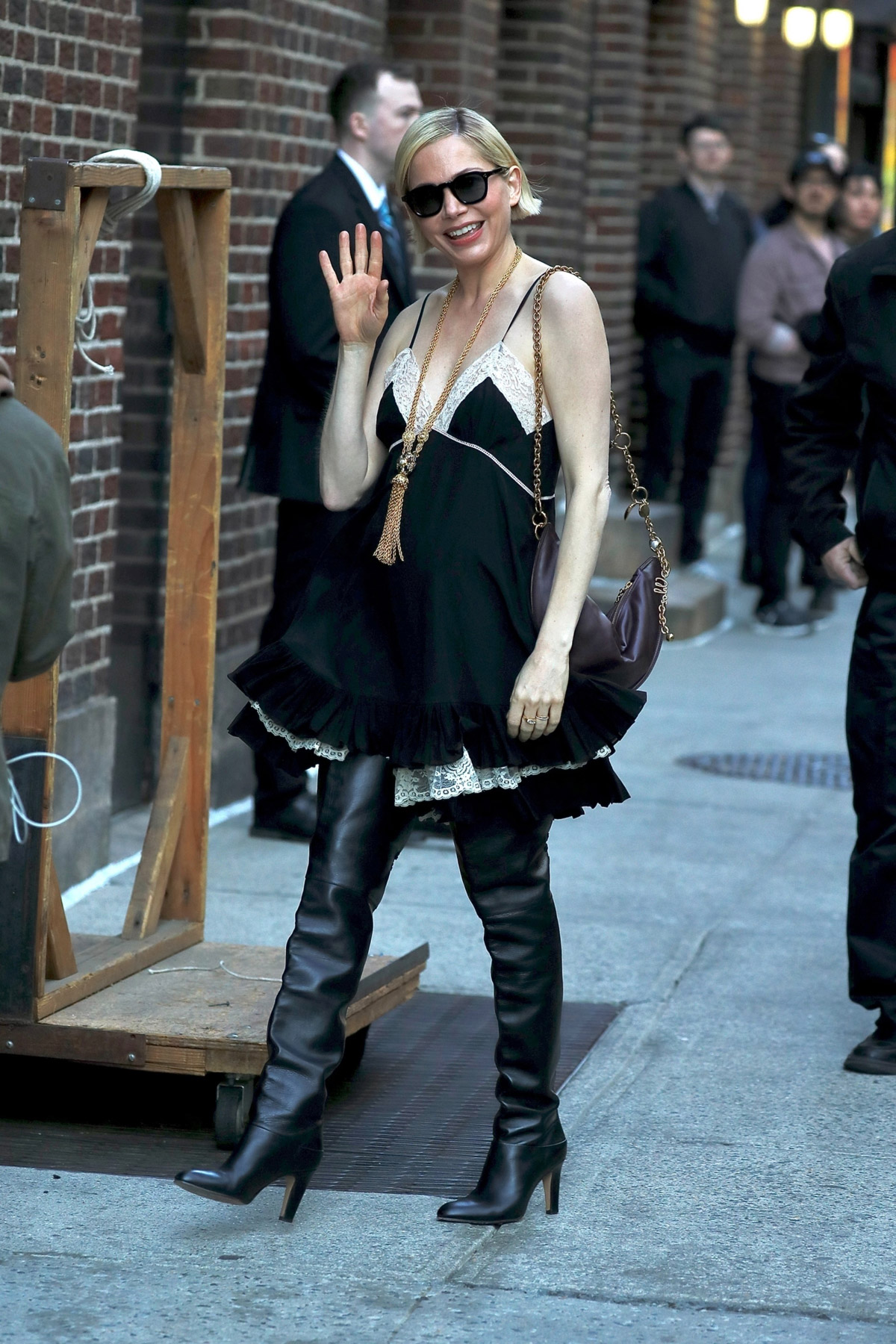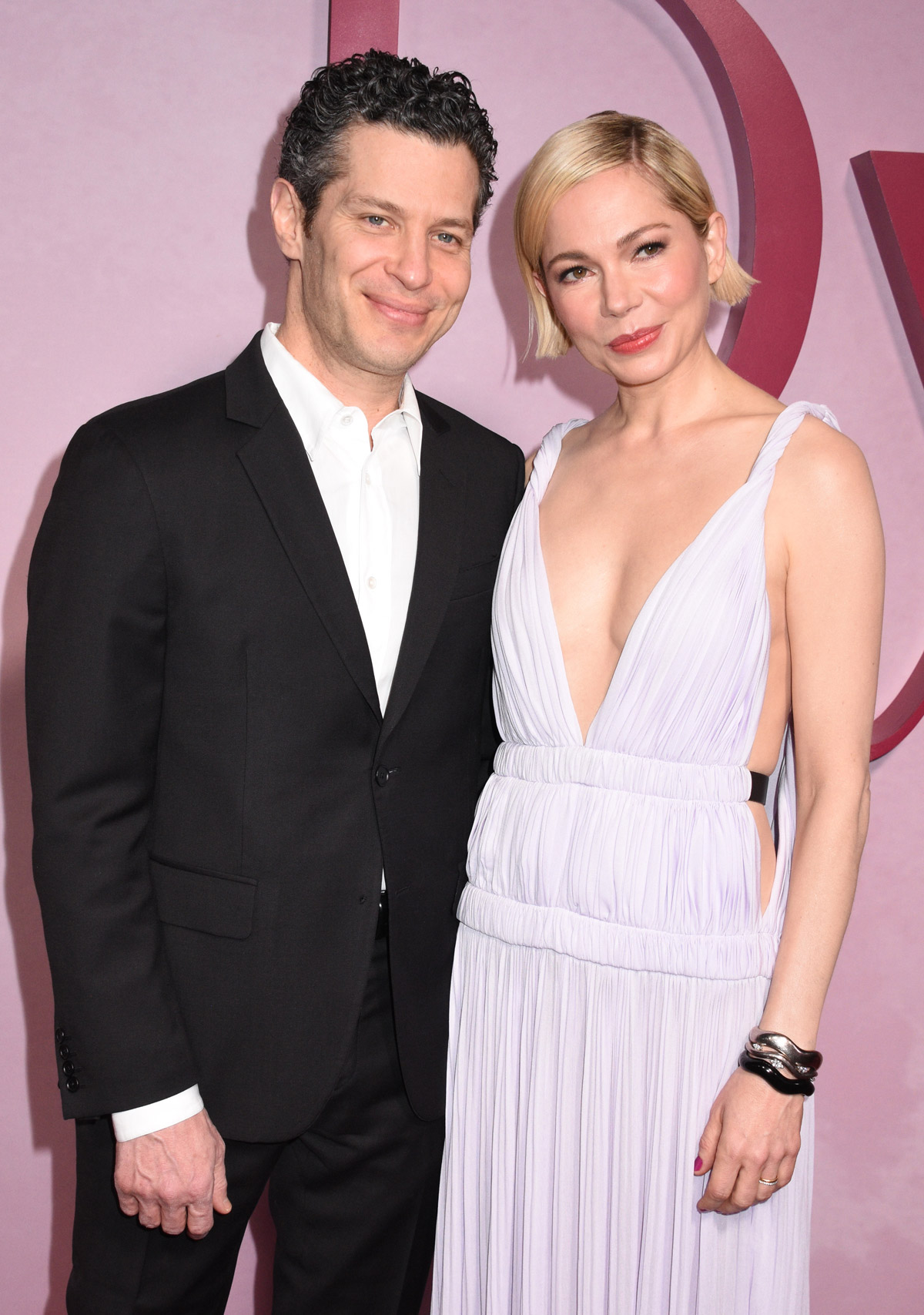
In my coverage of Michelle Williams welcoming a new baby, I mentioned that I would be spending the weekend watching her new eight-part Hulu show. I lied. I didn’t spend the weekend watching Dying for Sex… because I watched the whole thing in one sitting the Friday night it premiered. It is SO GOOD. (And the episodes are only 30 minutes each.) The show is based on a true story about Molly Kochan, Michelle’s character, who sets out to explore her sexuality after getting a terminal cancer diagnosis. Heavy stuff, but the show is actually quite hilarious. It’s also refreshingly honest and matter-of-fact in the way the characters discuss their sexual desires, preferences, and disappointments. Michelle just spoke with The Hollywood Reporter to hype the series, and she had some really great answers when asked about filming all the sexual scenarios. Note: there are no spoilers excerpted below, but if you click the link the full interview has many.
There are so many sex scenes in this show. When you were first reading the script, which scene intimidated you most? Which one were you excited about and did that change when you were filming?
The scripts kept rolling in as we were filming, so we would be in the middle of an episode and then we would get a script for the next one. To be honest, at this point, I had watched the first two and then maybe three scripts roll in, and I had felt so enlivened after reading them. While maybe in my schooled brain, or I don’t know I would term it… it’s like the way you were habituated to think or maybe what you were taught or told as a child or an adolescent. The things that you’ve tried to free yourself from as a grown woman and also as a parent of a daughter, in my attempt to untangle myself from these ideas that were given to me so that I could break from that tradition and pass something different onto my own daughter.
Perhaps I heard a tiny little alarm bell twinkling in the back of my brain, saying, “Oh, that might be embarrassing, or somebody might be upset with you, or what will so-and-so think?” But then my next thought was, “Fantastic! This is exactly what I set out to do. I want to disconnect pleasure and shame.” That’s really one of the journeys that the character goes on, so can she experience something that’s meant for her that is pleasurable without feeling bad for it, or something that’s going to befall her because of it. So I really leapt wholeheartedly into these scenarios, whether they be in masturbatory sequences or partnered with these people that she meets along the way. I relish the written words and situations that Liz [Meriwether, showrunner] had laid out in front of us.
Michelle Williams always strikes me as so thoughtful and eloquent, and paring down her core emotional attraction to the show to “I want to disconnect pleasure and shame,” is just splendidly concise. And profound. I mean, that’s it! That’s the whole game! Dying for Sex is definitely not Fifty Shades of Grey, nor is it maudlin, even as they don’t back down from presenting a candid portrait of dying (full confession: I sobbed for the entirety of the final episode). So with all that, it’s hard to convey just how funny and joyous the show is — Michelle doesn’t get enough comedic roles, her timing and expressions were inspired! It’s also some of the best work I’ve ever seen Jenny Slate do, in the co-leading role of Molly’s best friend, Nikki, who Molly asks to be her primary caregiver. Or as Molly puts it in the first episode, “I want to die with you.” (“And you’re sticking to that claim that it’s a funny show, Kismet?” “Yes, yes I am!”) Anyway, enough of me trying to sell it. Go watch for yourselves and then come back to discuss!
Photos credit: Santi Ramales/Backgrid, Janet Mayer/INSTARimages.com, Darla Khazei/INSTARimages






